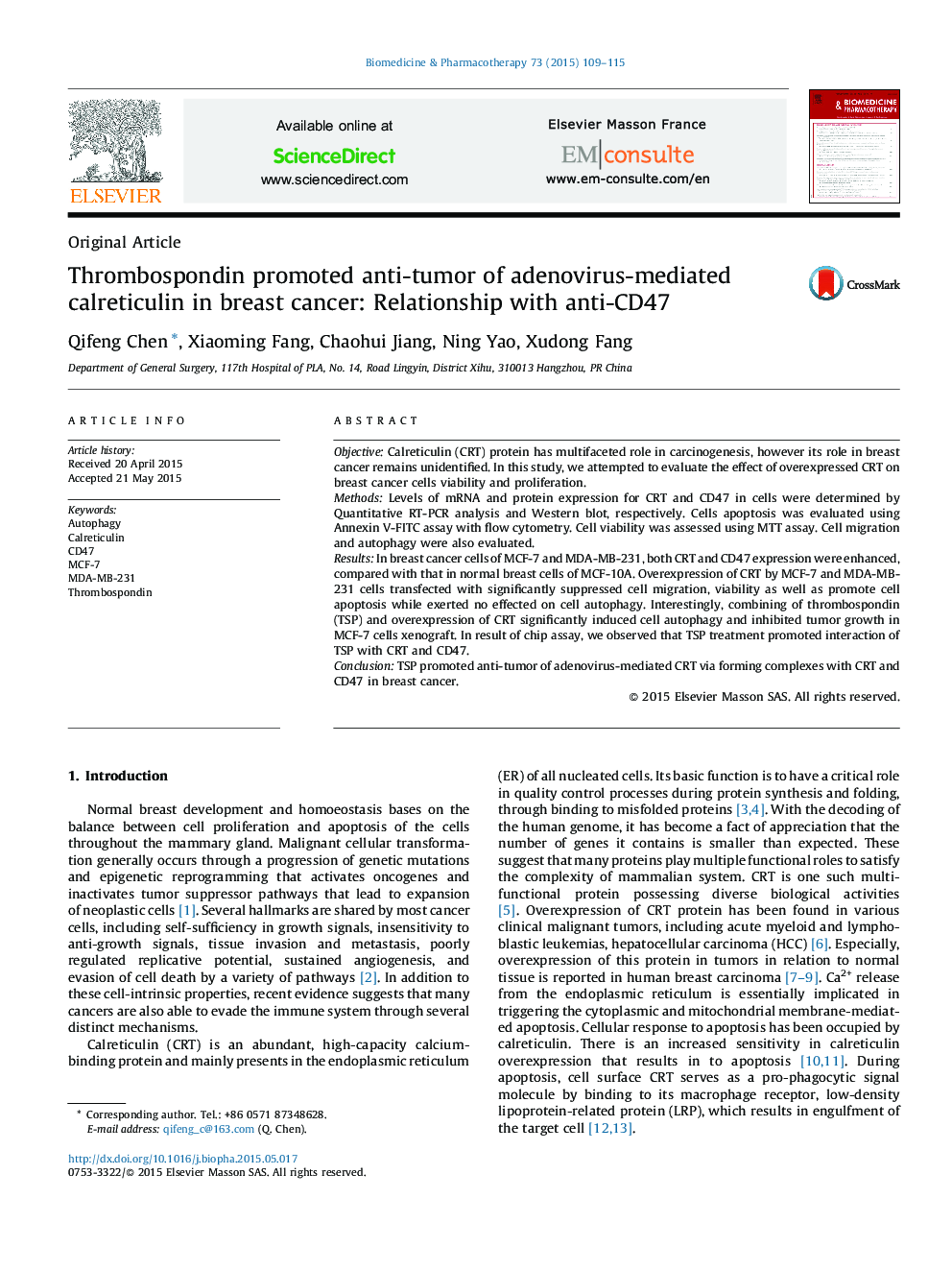| Article ID | Journal | Published Year | Pages | File Type |
|---|---|---|---|---|
| 2523855 | Biomedicine & Pharmacotherapy | 2015 | 7 Pages |
ObjectiveCalreticulin (CRT) protein has multifaceted role in carcinogenesis, however its role in breast cancer remains unidentified. In this study, we attempted to evaluate the effect of overexpressed CRT on breast cancer cells viability and proliferation.MethodsLevels of mRNA and protein expression for CRT and CD47 in cells were determined by Quantitative RT-PCR analysis and Western blot, respectively. Cells apoptosis was evaluated using Annexin V-FITC assay with flow cytometry. Cell viability was assessed using MTT assay. Cell migration and autophagy were also evaluated.ResultsIn breast cancer cells of MCF-7 and MDA-MB-231, both CRT and CD47 expression were enhanced, compared with that in normal breast cells of MCF-10A. Overexpression of CRT by MCF-7 and MDA-MB-231 cells transfected with significantly suppressed cell migration, viability as well as promote cell apoptosis while exerted no effected on cell autophagy. Interestingly, combining of thrombospondin (TSP) and overexpression of CRT significantly induced cell autophagy and inhibited tumor growth in MCF-7 cells xenograft. In result of chip assay, we observed that TSP treatment promoted interaction of TSP with CRT and CD47.ConclusionTSP promoted anti-tumor of adenovirus-mediated CRT via forming complexes with CRT and CD47 in breast cancer.
